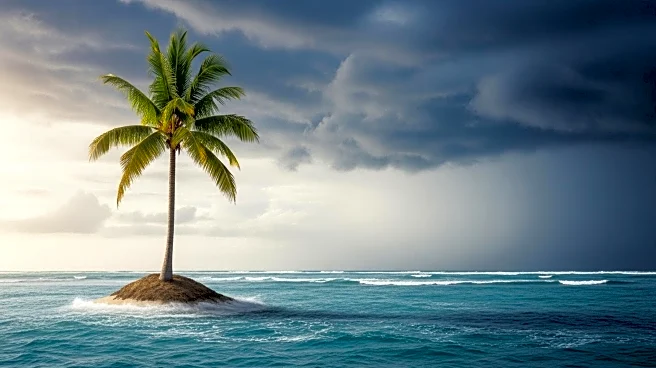What's Happening?
Residents of Pugad Island in the Philippines are battling rising sea levels and land subsidence, which threaten to submerge the island. The phenomenon is attributed to overextraction of groundwater and global warming. Geologist Mahar Lagmay highlights the alarming rate of subsidence, exacerbated by rising tides. The community faces daily challenges, including adjusting class schedules and elevating homes to cope with frequent flooding. Despite piecemeal efforts to ban groundwater extraction, a comprehensive national strategy is lacking.
Why It's Important?
The situation on Pugad Island exemplifies the broader impact of climate change on vulnerable communities. Rising sea levels pose a significant threat to coastal areas, potentially leading to displacement and loss of livelihoods. The lack of effective policies and international cooperation to reduce greenhouse gas emissions underscores the urgent need for climate action. The island's plight highlights issues of climate justice, as those least responsible for emissions suffer the most severe consequences.
What's Next?
A government study on addressing land subsidence and rising sea levels is expected by 2028, but immediate action is needed to prevent further damage. The UN climate fund established to assist affected countries remains unimplemented, calling for international accountability and support. Residents like Maria Tamayo face difficult decisions about whether to leave their homes, as the island's future remains uncertain without large-scale intervention.
Beyond the Headlines
The story of Pugad Island raises ethical questions about global responsibility for climate change. It highlights the disparity between industrialized nations and vulnerable communities, emphasizing the need for equitable solutions. The ongoing struggle of residents reflects broader challenges in adapting to environmental changes and securing sustainable futures for affected populations.










